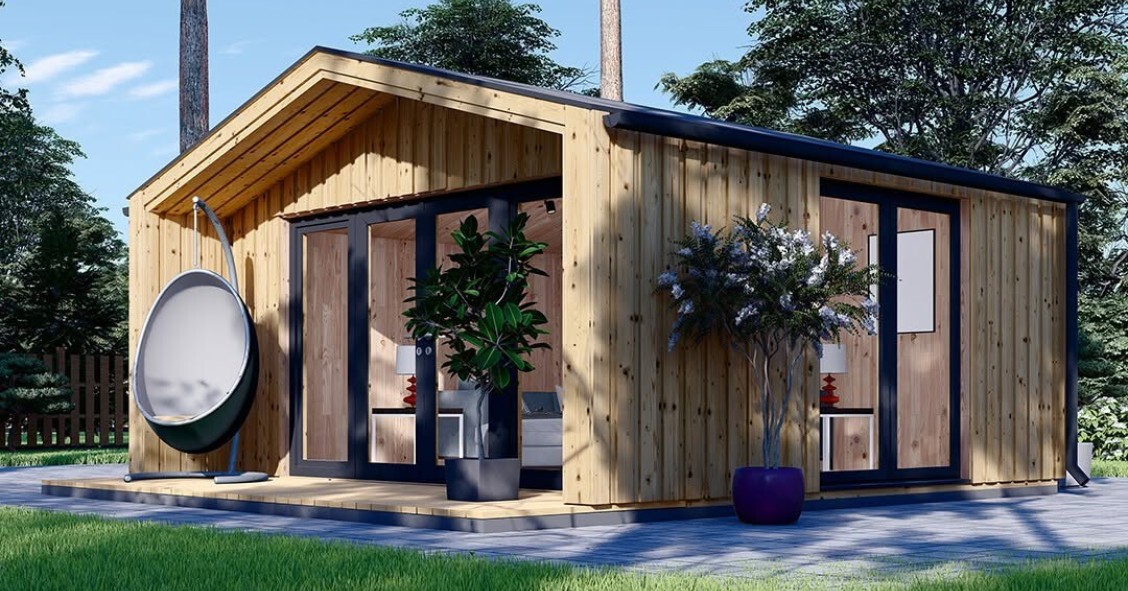
With house prices skyrocketing, the question of whether buying or renting is more convenient is hanging over our heads more and more. However, answering this question is not so simple. The truth is that there is no single solution, as it will depend on each household's personal and economic situation.
Buying or renting a house – which is better in 2024?
The truth is that this question is somewhat more complex than it appears. While it is true that buying a property gives you ownership of a home that you can sell in the future to earn money, you need some initial savings to do so. Few, if any, banks today offer 100% mortgages, so if you don't have around 20% saved up, buying becomes more complicated.
"It depends on your financial situation. If you have the money to take out a mortgage – approximately 20% of the property value – I always recommend my clients to buy," says Agustín Escalera, director of Sunny Homes Marbella.
"Monthly mortgage repayments are almost always going to be less than rent. Furthermore, in areas such as the Costa del Sol, where long-term rentals have lost ground to holiday rentals, prices are sky high, which extends to the rest of Spain," adds Agustín.
As for renting, it offers flexibility and requires less initial savings. If the property does not meet your expectations, you can move out. However, renting is not always the more affordable option in the long term, and although it is popularly said that "renting is a waste of money", this is not necessarily true for everyone.
Your choice should be based on your financial situation, needs and lifestyle. Some people may feel that renting gives them freedom and flexibility, while others may see buying as an investment and a valuable asset for their future.
Things to consider when deciding whether to rent or buy
Spain is traditionally a country of homeowners. The percentage of people living in rented accommodation in Spain is below the European average, although this figure has increased in recent years, due to changes in the mortgage sector.
Several factors have to be considered when deciding whether it is better to rent or buy, including your economic and employment situation.
- Savings available
To buy a house, you usually have to take out a mortgage. If you can pay cash for a house, buying is naturally the best idea. If this is not the case, when applying for a mortgage loan, you need to have saved approximately 30% of the value of the house (20% not financed by the bank plus 10% for taxes and expenses), as mortgages are granted for a maximum of 80% of the total value.
- Future plans to consider before buying or renting
Another key point when deciding whether to rent or buy is your personal and professional situation. Are you planning to move? Does your job involve moving to another city? If the answer is yes, you should rent. Buying a home, on the other hand, is a long-term commitment. The mortgage will tie you to the house for as long as it lasts.
On the other hand, you have to consider your employment and financial situation when taking out a mortgage. If you cannot pay the debts contracted with the bank, the house could be repossessed. Even if the scenario is good when buying the house, you must think if worse times could come. That's why you should fix a mortgage that is easy to pay in risky situations.
One advantage of buying a house is that you can sell it if your personal or financial situation changes. Ideally, you should wait until you have made money on the transaction, but if you find yourself in trouble, you can always recover part of your outlay.
- Understand the market
To find out which is best for you, you should be aware of the state of the market. If the rent is sky-high and the banking conditions are favourable, you may be better off buying, and vice versa.
It should be noted that the rental sector lives by the 'law of the quickest'. The supply is limited, and the best flats are snapped up very quickly. A reasonably priced, quality home lasts only a few days. On the other hand, the property market is more reflective.
For example, Carolina is one of those people who has found herself in this dilemma. "I have been looking to rent a house for months. I work from home and have pets, so I wanted something that would allow me to live comfortably with a garden. After months of searching, the most suitable property wasn't less than €900. In the end, I decided to buy. I pay €480 in mortgage, almost half what it would cost me to rent," she told idealista/news.
On the other hand, if you notice that house prices are falling, you may want to wait to see if they continue to do so and, in the meantime, live in rented accommodation. However, you run the risk of someone else snapping up your property.
Calculate whether renting or buying is the best for you
Now you know all this information the next step is to do the maths. Which is better for you, buying or renting?
When is it better to buy?
Buying rather than renting can be considered a long-term investment. If you're wondering why buy, you should know that, unlike renting – where monthly payments do not accumulate into a tangible asset – mortgage repayments contribute to the equity of a property. Over time, this asset can increase in value, which could generate a return in the event of a future sale. Moreover, once the mortgage is fully paid off, you no longer have a significant monthly expense, providing future financial security, especially in retirement.
Another advantage of buying is the freedom and independence that comes with homeownership. Homeowners can personalise, renovate or make changes to their property as they see fit without asking permission from a landlord.
When is it more cost-effective to rent?
Renting may be a better option than buying a house if:
- You can't get a mortgage: rent is cheaper than a down payment on a house.
- You move around a lot: If you travel a lot or work for long periods away from home, renting allows you to move around more easily.
- If you want to buy but don't have the money or can't find the house you like, renting is a good option.
Rent-to-own, the best of both worlds?
Rent-to-buy is one option to consider if you're on the fence. On the one hand, you can live renting the house you like with a view to buying it in the future while you raise the money needed to do so.
Also, when the contract allows, you can back out, and move to another house. On the other hand, you can buy the house if you raise the money first, and the owner will be obliged to sell it. Not to mention that part of the monthly payments will be deducted from the final price.
Which is cheaper, rent or mortgage?
Generally, the mortgage will have lower repayments than renting, as the loan granted by the bank is usually paid over many years, which lowers your monthly payments. However, interest will have to be paid on the mortgage, which is not the case with renting.
In addition, rental prices depend on the properties' characteristics (surface area, condition, location, etc.), and you can find houses for rent for much lower prices than mortgage payments, but they are not usually be very attractive (they will be in poor condition, in very isolated areas, etc.).
Buying or renting a house as a young person in 2024
If you are young and have the financial resources to move out of your parents', you should have questions in mind to help decide whether to buy or rent. Moreover, you should know that grants are available to buy a home. Here are some of the pros and cons of both options:
Buying a house when you are young
Some advantages of buying a house when young are:
- Long-term investment: Over time, the property value can increase, offering a return on investment.
- Stability: Once purchased, there is no risk of contract terms or unexpected rent increases.
- Independence: Greater freedom to alter and personalise the property.
On the other hand, buying a house when you are young also has certain disadvantages:
- Large initial investment: You need to have some savings and pay the interest on the mortgage.
- Responsibility: As the owner, you are responsible for all maintenance and repairs.
- Less flexibility: Selling and moving is often more complicated and costly than simply terminating a rental contract.
Renting a property as a young person
Some of the advantages of renting a house when you are young:
- Flexibility: It is easier to move if personal or work circumstances change or you want to explore a new place.
- Fewer initial responsibilities: There is no large initial outlay, and maintenance is generally the landlord's responsibility.
- Try before you buy: Renting allows you to experience different areas and housing types before making a long-term commitment.
Renting a flat when you are young can have some disadvantages:
- Expense: In the long run, you could spend more on rent than on a mortgage.
- Limitations: Landlords may have restrictions, such as no pets or limits on personalising the space.
- Instability: Rental contracts are often short-term and may not be renewed.






